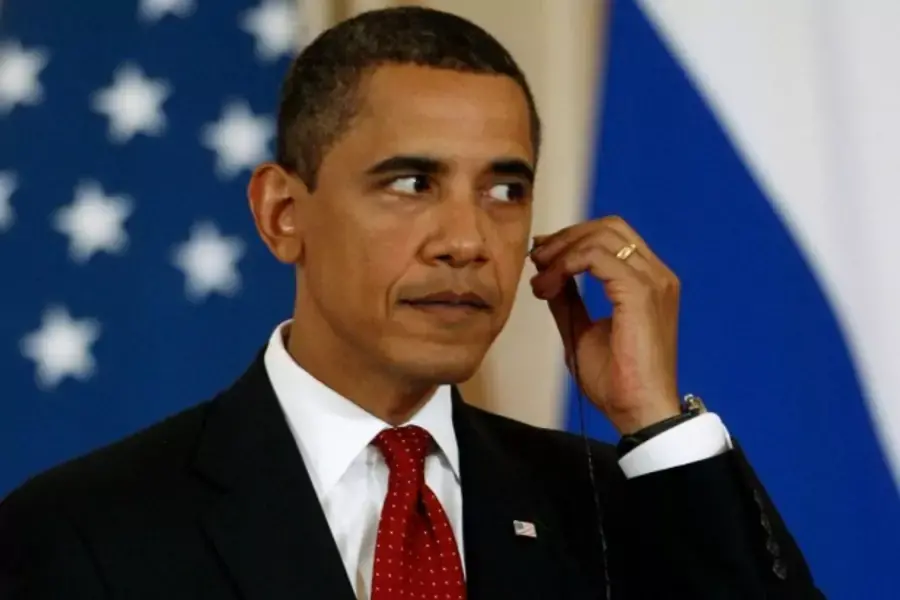Obama and Xi: Can the United States and China Speak the Same Language?

More on:
Leading up to today’s summit between U.S. President Barack Obama and Chinese President Xi Jinping, the drumbeat from Beijing has been consistent and insistent: China and the United States should build a “new type of great power relations.” The message from the U.S. side, in contrast, has been all about the specifics: cyber-hacking, North Korea, human rights, and economic issues. Both sides are touting the opportunity for the two presidents to get to know each other, but it won’t be easy if they are not speaking the same language.
The truth is that Washington and Beijing rarely approach the relationship in the same manner. The Chinese approach the relationship by first establishing a concept or set of principles; details to follow. The United States, in contrast, is all about the issues and the details. Establishing a concept for the relationship or putting it in a framework is a fourth or fifth-order issue.
This time around the Chinese are trying their best to flesh out their concept of a new relationship—an acknowledgement, perhaps, that it won’t go anywhere if there aren’t specifics attached. Yet the proliferation of official and semi-official Chinese voices has produced a din that makes it difficult to discern the real message. Some Chinese officials argue that the new relationship depends on the United States; China has already done its part. Former Chinese Ambassador Lü Fengding, for example, has claimed that “…since China has done its utmost to show its sincerity, Americans should take practical steps as well. At the very least, the US should stop fabricating excuses, such as alleged cyber-attacks to vilify China, mislead the American public opinion and sabotage a [sic] prosperous Sino-American relations. The United States should also try to clarify its intentions for implementing its rebalancing strategy in Asia-Pacific, as well as refrain from interfering in China’s internal affairs on matters of the Chinese core interests.”
Others are more even-handed. According to Yang Jiemian, a leading Chinese scholar and brother of former Chinese foreign minister Yang Jiechi, the new relationship means new thoughts, new thinking, a new code of conduct, and new values. More specifically, Yang suggests that the United States and China should transcend their difference in ideologies; establish new attitudes to build up new shared values; mutually support each other on important global issues; and coordinate strategic thoughts and policies. And China Institute of International Studies Vice President Ruan Zongze has argued that the main purpose of the new relationship is to “avoid a zero-sum game featuring historical relations between big powers jostling for hegemony by force.”
Threaded through all these disparate views, however, is a sense that there is something more that the Chinese are seeking, something they don’t want to have to ask for, namely, as Jamil Anderlini suggests in the Financial Times, a partnership of equals. However, it appears that for now the United States is not prepared to endorse such a partnership. Instead it has elected to interpret the Chinese concept of a new type of great power relations only in the narrowest sense—that put forward by Ruan. Former National Security Advisor Tom Donilon, in a speech before the Asia Society, noted that it “falls to both sides—the United States and China—to build a new model of relations between an existing power and an emerging one” in order to avoid realizing “the premise put forward by some historians and theorists that a rising power and an established power are somehow destined for conflict.”
For its part, the United States isn’t advancing any new ideas for the summit and, thus, there is not much confusion over its message. The United States wants what it always wants—China to stop: stop cyberhacking, stop IP theft, stop human rights abuses, stop North Korea’s nuclear program, stop ratcheting up tensions in the East and South China Sea, and stop establishing barriers to free trade and investment.
As deaf as the United States appears to China’s hopes for the summit, the Chinese are equally deaf to U.S. calls. Maybe it’s not that the two countries don’t speak the same language, it’s just that they don’t want to hear what the other is saying.
More on:
 Online Store
Online Store